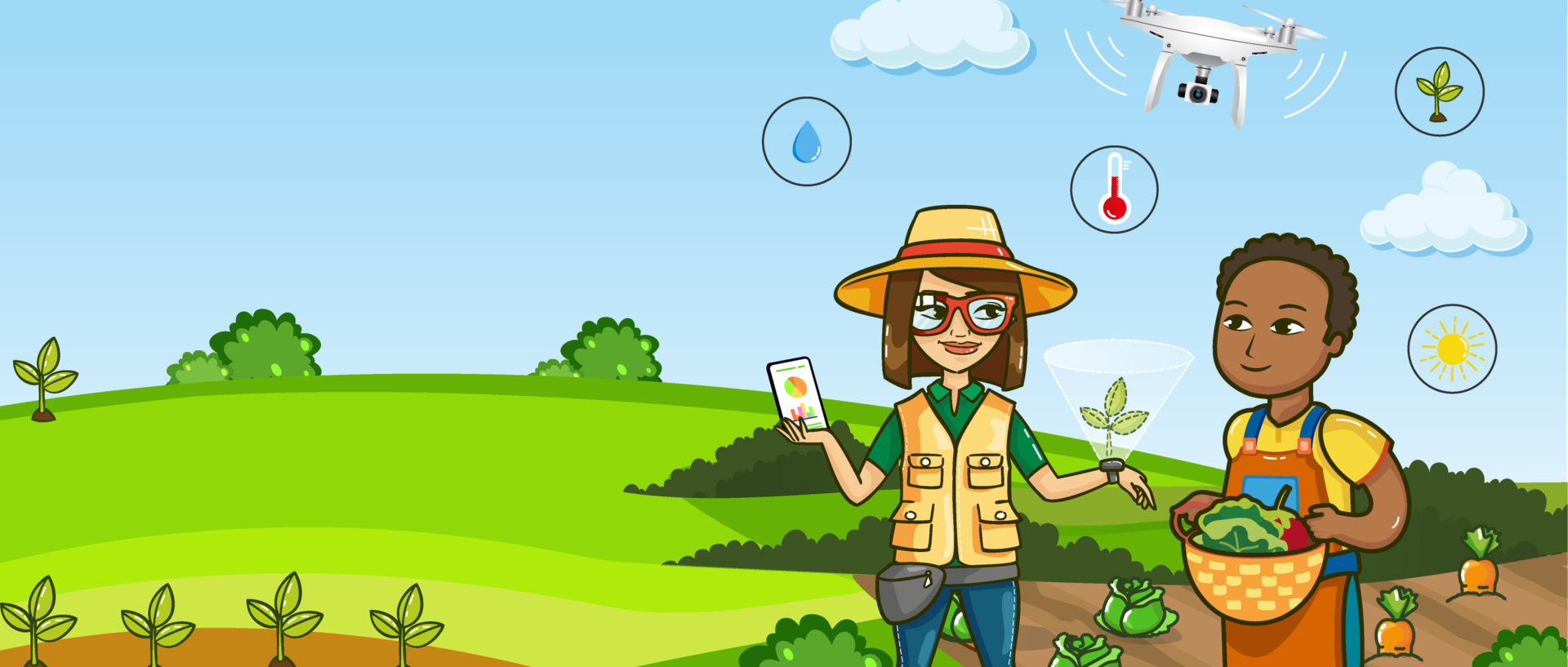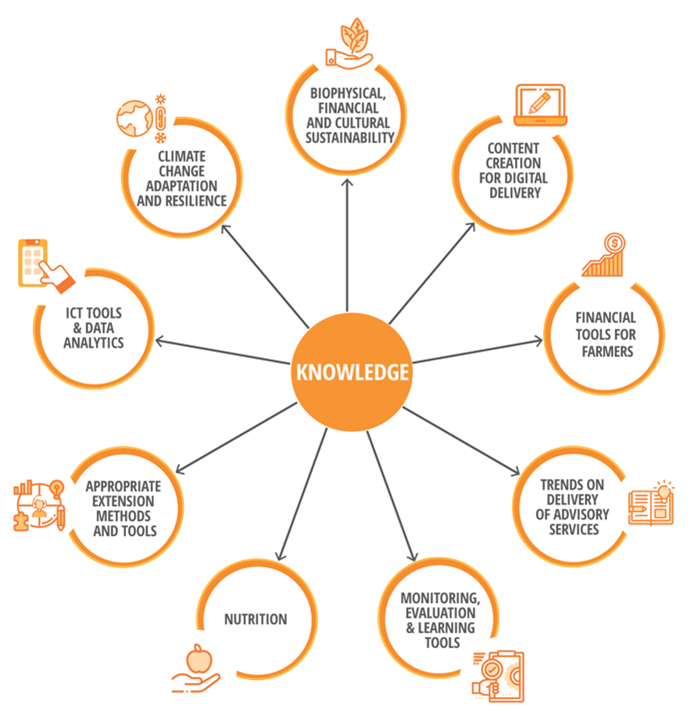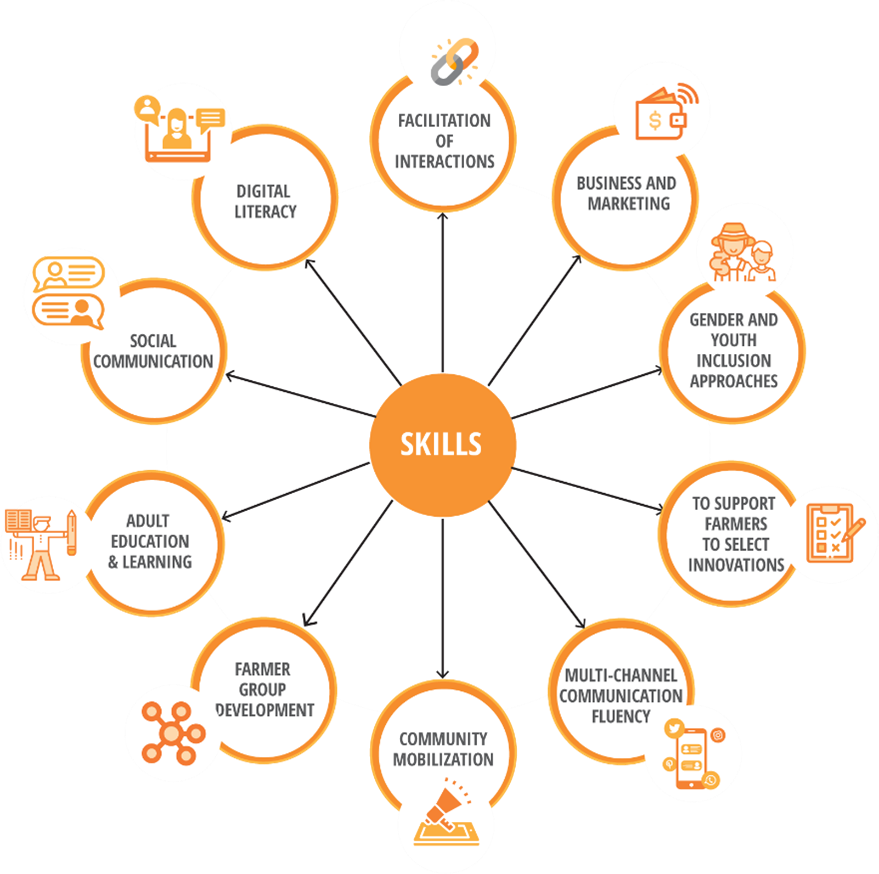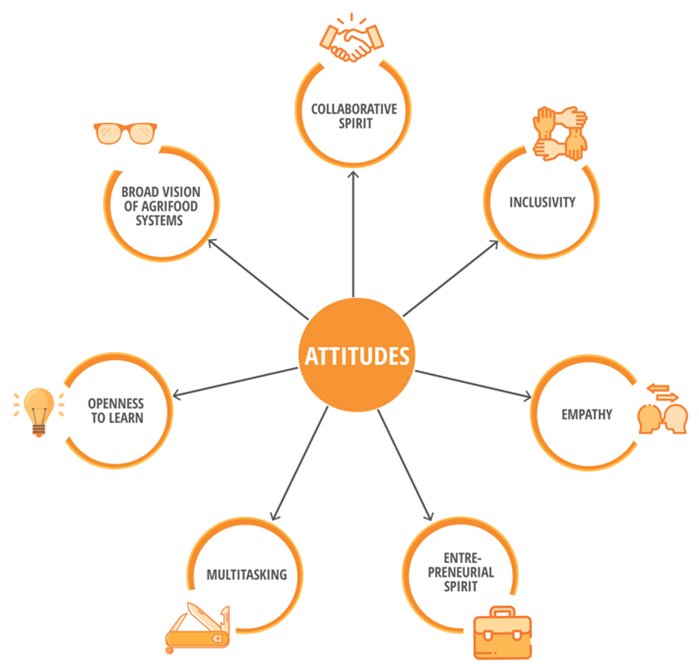Blog Extension agents grow new skills to cultivate a better future for CGIAR impacts

©Ximena Hiles
In the technology-driven world of the future, the knowledge, skills and attitudes of agricultural extension agents are critical. The CGIAR has an important role in helping extension agents meet the growing demand for their work.
In an increasingly digital world with great challenges for the agrifood sector (including COVID-19), can agriculture extensionists help produce food sustainably? Extension is the term used for the formal and informal systems that support practical agricultural knowledge exchange to, between, and from farmers. Extension agents not only help to transfer technologies, information, and skills to farmers; they are also a key link between policy, research, markets, and producers, and are vital to guarantee the impact of many CGIAR innovations. They play a crucial role helping farmers to organize themselves and have their voices heard, ultimately motivating them to take initiative and thrive.
While doing their job extensionists face myriad challenges that hinder their performance and ultimately their impact on farmer livelihoods. To provide solutions to this complicated issue, the Community of Practice in Data-Driven Agronomy (Big Data Platform – CGIAR) and the Feed the Future Developing Local Extension Capacity (DLEC) program joined forces to explore and define the future of agricultural extension far beyond sustainable crop production. The findings highlight the main knowledge, skills, and attitudes that the extension agent of the future should have.
Knowledge

©Ximena Hiles
As digital communication technologies and platforms are now ubiquitous across society, these tools can be leveraged by extension agents to create and deliver content. However, this may require new and specialized knowledge. For example, how to synthesize complex agricultural practices (e.g. plant and soil health management), creating concise messages tailored to socio-economic contexts and diverse needs, that can be transmitted through digital delivery channels (SMS messages, Interactive Voice Response technology, TV, video, radio and apps)? What knowledge is needed regarding extension methods and tools to organize farmer groups through social media platforms and foster information exchange while ensuring data privacy? While many of today’s youth may be conversant in these digital tools and technologies, there are still important knowledge gaps for adaptation to agricultural extension.
Skills

©Ximena Hiles
Extension agents should have a set of skills with a strong focus on community mobilization and capacity strengthening. For example, an extension agent should be able to develop farmer groups, helping them to organize themselves for better access to inputs, finances and markets. They must be able to provide guidance and transmit key messages to different audience groups so they can thrive.
Attitudes

©Ximena Hiles
Extension is a very complex job which requires close interaction with farmers, usually in a limited-resource environment. To perform in this environment a few attitudes are crucial for extension agents. For example, inclusivity is key, as farming communities are composed of diverse groups of individuals, young single women and men, couples, widows, etc. Each of them has different socioeconomic backgrounds, skills, abilities, and attitudes toward agriculture. Therefore, extension agents should be able to perceive this diversity and integrate it in their approach of extension delivery.
Next steps:

©Ximena Hiles
Agricultural researchers, policymakers, civil servants, and practitioners can all help to develop and support the extension agent of the future. We can foster an enabling environment with partnerships that support the delivery of innovative extension programs using a lens of equality and inclusion; we can support the commitment of educational institutions to create new curriculum that allows the learning of the required knowledge, skills, and attitudes. We can work hand-in-hand with technology developers to create the next generation of digital tools for agriculture.
The CGIAR and its partners aim for five impact areas: nutrition, health, and food security; poverty reduction, livelihoods, and jobs; gender equality, youth, and social inclusion; climate adaptation and mitigation; and environmental health and biodiversity.
Extension is critical to achieve these impact areas, but the extension agent of the future must be equipped to contribute. We need high-quality extensionists with solid scientific, technical, and humanistic grounding, critical thinking, and an entrepreneurial spirit, who can contribute to impact agri-food systems and co-create climate-smart, nutrition-sensitive and sustainable farm management solutions. In this context, CGIAR provides solid, tailor-made science and institutional support. In broadening public-private partnerships and science-backed action plans, CGIAR plays an important role in the digital revolution.
Take a look at the infographic
